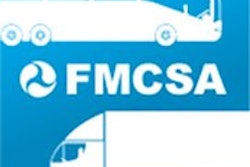
Cleveland, Ohio—May 12, 2016—In spite of solid financial gains driven largely by a robust rate environment, truckload carriers faced declining utilization while other transportation service providers reported mixed results over the most recent 12-month reporting period, according to the newly released Transportation & Logistics Study, now available from TMW Systems.
The new version of the TMW industry study for performance benchmarking incorporates detailed information covering rates, utilization, driver wages and retention, management of maintenance costs, diversification plans and other insights collected in 2015 from more than 150 transportation enterprises representing in excess of $31 billion in combined annual revenue. Participation in the underlying survey—which included more than 200 questions covering respondents’ financial, operational and/or maintenance metrics—grew by more than 15 percent over the preceding year.
Although most truckload irregular and dedicated fleets posted significant improvement in financial performance—with twice the number of irregular and nearly three times as many dedicated carriers reporting healthier operating ratios—those gains were driven almost exclusively by rate increases. Utilization, another fundamental contributor to profitability, declined for many fleets over the same period.
“There’s room both for enthusiasm about respondents’ improved financial performance and concern regarding the challenges that continue to negatively impact operational efficiency,” said TMW President David W. Wangler. “I am pleased to see that more and more fleets and non-asset enterprises use the market intelligence provided in this study to benchmark their operational performance and potentially uncover areas where they might need to take corrective action.”
Driver Retention
Fleets posting increased driver miles per week generally experienced lower turnover, with additional factors—wages, fleet size, average length of haul and tractor-to-fleet-manager ratio—continuing to affect both driver turnover and, by extension, asset utilization.
Asset Utilization
Hours-of-service (HOS) rules and, increasingly, fleets catering to driver preferences, such as increased home time, continue to impact many fleets’ daily working percentages.
Dedicated Services Adopting More Flexibility
Data points to a trend replacing some traditional dedicated contract freight services with hybrid blends of dedicated and regular service that come with more flexible pricing and adaptive service levels on select lanes.
Service Expansion
A growing number of carriers with plans to diversify are targeting the brokerage and 3PL segments, while fewer intend to expand into dedicated carriage and warehousing.
Fuel Cost Management
While lower fuel prices in general benefited all fleets, respondents nonetheless continued to aggressively adopt idle reduction technologies such as auxiliary power units (APUs) and in-cab heaters.
Participants in the annual TMW Transportation & Logistics Study survey receive a comprehensive version of the report containing aggregate detailed response metrics for more precise benchmarking insights and key performance indicator (KPI) planning. To access and download a summary version of the study and to sign up to receive the survey questions for the 2016 study, visit www.tmwsystems.com/study.















![Pros To Know 2026 [color]](https://img.sdcexec.com/mindful/acbm/workspaces/default/uploads/2025/08/prostoknow-2026-color.mduFvhpgMk.png?ar=16%3A9&auto=format%2Ccompress&bg=fff&fill-color=fff&fit=fill&h=135&q=70&w=240)
